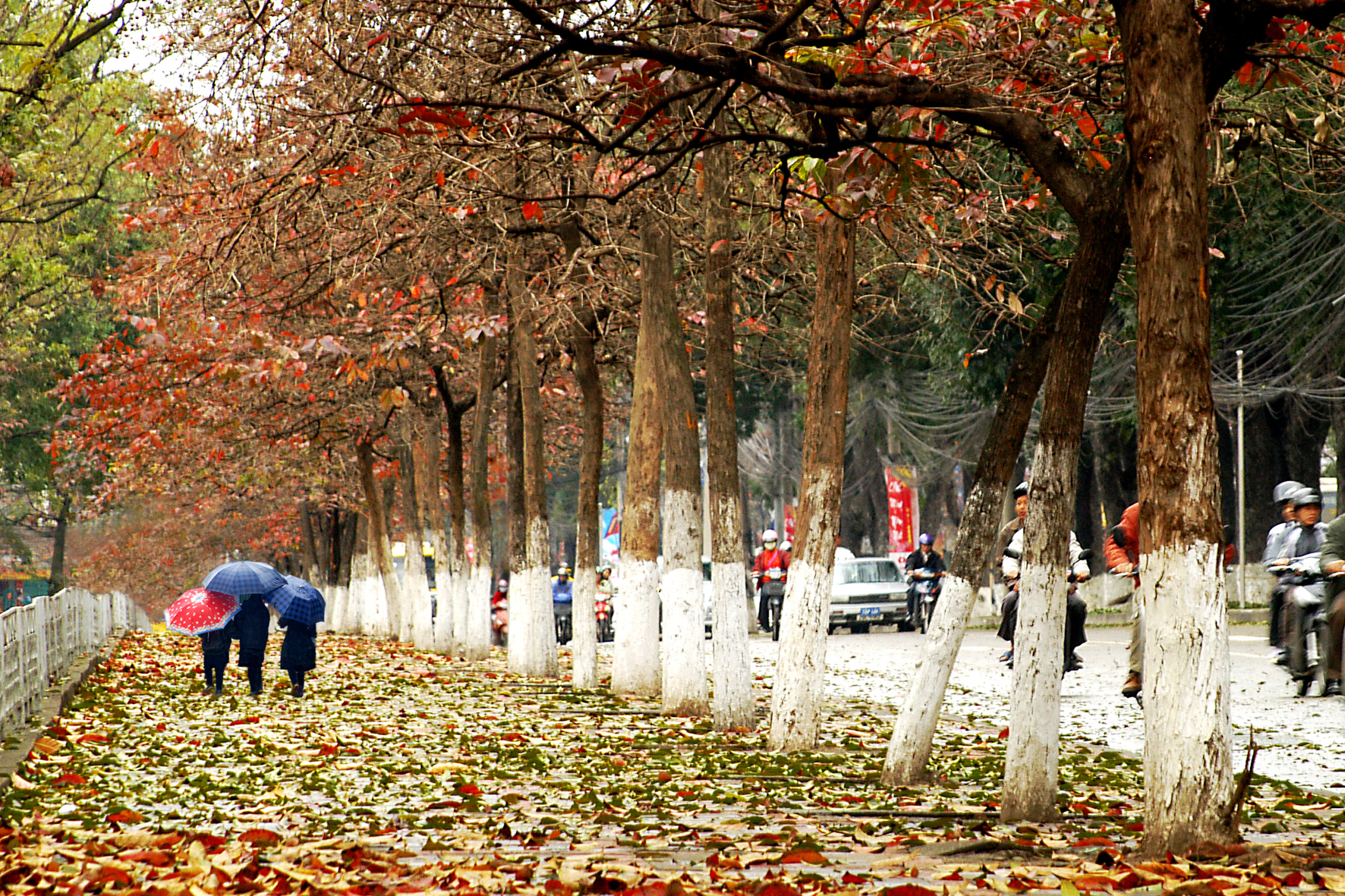ORANGE COUNTY, California – A couple of summers ago, during a long visit home, I was surprised to spot a restaurant called Pho Hanoi in a modern shopping center near my in-law’s Irvine home. The Viet Kieu in the U.S. tend to be southerners, but the owner of this bistro, I was told, wanted to honor his hometown.
It was not until last week that I finally dropped in for lunch for pho bo (Vietnamese beef noodle soup) – or rather, pho tai nam (Vietnamese noodle soup with rare and done beef), to be specific about the cuts. Later I stopped by for bun cha (a Vietnamese dish of grilled pork and noodles) and on another day the bun bo Hue (a popular Vietnamese soup prepared in the style cooks in the central Vietnamese city of Hue do and containing rice vermicelli and beef). The portions were large, the prices fair, the quality good.
Yet the meals left an oddly melancholy aftertaste. I wondered: Was Pho Hanoi making me feel homesick – for Hanoi?
Expatriate life, I have learned, is one of ever loosening roots. This summer sojourn, more than the others, has evinced a certain dissonance – a feeling of time slipping by and something slipping away. The very idea of home, so solid in my experience, seems ever more fungible.
My hometown is Santa Ana, California, a patch of the vast suburban sprawl about 35 miles south of Los Angeles. I have spent this summer in the cookie-cutter tract home my parents bought four years before my birth. The phone number is the same one I memorized as a kindergartener. So that is certainly home.
Now my Saigon-born, Santa Ana-raised wife and I have a kindergartener of our own. For the past year, while riding in taxies in Hanoi, the little guy has had the charming habit of declaring, “I want to go see ba noi [paternal grandma]” or “I want to go to ba noi’s house.” We tell him that we can’t today – she lives too far away – but we will when we can.
But as I write these words, my 87-year-old mother, my children’s ba noi, is not at home but is recuperating in a nursing facility. Like last summer, I came home one evening to discover she had fallen on the back patio, trying to take out the trash. The X-ray showed a fracture just below her right shoulder. The injury means she cannot use her right arm and thus cannot use her walker. Her legs were already so weak we now fear she may need a wheelchair for the rest of her days and full-time care. My two siblings and I face dilemmas in how best to care for mom. Will our family home still be her actual residence in the years ahead? Too soon to say. So my mother’s travails, in the December of her years, are one source of melancholy. And then I find myself thinking of our children, and wondering how our decision to live the expat life will affect their own sense of home.
Our middle-schoolers certainly remember living in America, and our house in San Jose. But the little one was only a year old when we moved to Hanoi – and he has only spent a few weeks each year since in the U.S. And yet somehow, the way he talks about wanting to go to ba noi’s house, wanting to see ba noi, he seems to understand that this is a special place.
“He’s really going to be a third-culture kid,” his brother said. The term, I gather, applies to ethnically mixed children who live away from their home country. Will this American boy come to think of Hanoi as his hometown? Will he think of himself as neither here nor there? The notion, to me, is unsettling.
And then my thoughts turn to his ba noi, who has her own clear sense of “home.” Yes, there is that house I am sitting in as I write these words, but even more so is her longing for her sweet home Alabama, to quote a popular song. Her memories of Birmingham, a bloody battleground of the black civil rights movement, are happy ones that seem incongruous to the actual history.
But maybe having deep roots are overrated. Some people, it seems, were blinders out of loyalty. When we moved overseas, we were excited by the prospect that our children would see so much more of the world and not be so influenced by American culture, though that is impossible to fully escape.
Driving on the freeway the other day we passed a sign for the Orange County airport that was named in honor of a movie star famous for playing American icons such as cowboys and soldiers.
“Dad, who’s John Wayne?” my 13-year-old asked. “Does he own the airport?”
Now, maybe most 13-year-old Americans these days would wonder about that. Still, it felt good to hear the question. I was glad he did not know.
Soon I’ll be heading “home” for Hanoi, feeling both glad and sad.






















































